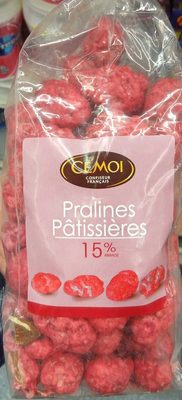Pralines Pâtissières - Cémoi - 400 g
This product page is not complete. You can help to complete it by editing it and adding more data from the photos we have, or by taking more photos using the app for Android or iPhone/iPad. Thank you!
×
Barcode: 3123754702451 (EAN / EAN-13)
Quantity: 400 g
Brands: Cémoi
Categories: Plant-based foods and beverages, Plant-based foods, Snacks, Sweet snacks, Confectioneries, Nuts and their products, Nut confectioneries, French pralines
Stores: Carrefour
Countries where sold: France











